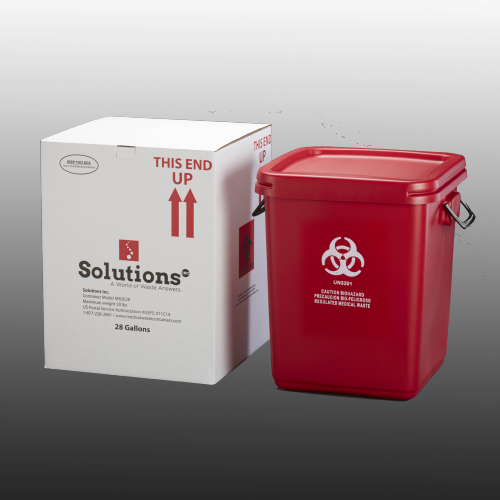Navigating Medical Garbage Disposal: Vital Services for Health Care Facilities
Healthcare centers, whether small facilities or big hospitals, are delegated with the duty of handling, dealing with, and disposing of a large range of medical waste streams. Recognizing the necessary services that sustain medical waste disposal is not just an issue of conformity but also a basic component in protecting public health and ecological health.
Regulatory Compliance Assistance
For medical care facilities, guaranteeing regulative conformity assistance is important to maintain appropriate handling and disposal of medical waste. By partnering with regulative conformity professionals, healthcare centers can remain updated on progressing policies, alleviate threats linked with improper waste disposal, and ultimately add to a safer and much more sustainable setting for all.
Waste Partition Guidance

Healthcare centers must offer clear guidelines and training to staff on how to set apart waste effectively. This consists of separating basic waste from dangerous materials such as sharps, contagious waste, pharmaceuticals, and chemical waste. Color-coded containers, labels, and signage are frequently made use of to help in waste partition methods. Routine audits and surveillance of waste segregation processes are crucial to determine any type of concerns and make needed renovations.
Collection and Transportation Services

Appropriate collection and transportation services are important components of the medical waste disposal process in healthcare centers. These solutions make sure that harmful materials are managed securely and in compliance with regulations to safeguard both the environment and public health and wellness. Health care facilities count on specialized waste administration companies to provide efficient collection and transport services customized to their needs.
Clinical waste collection involves setting apart different sorts of waste at the point of generation, making use of color-coded bags or bins to distinguish in between general, harmful, pharmaceutical, and various other waste streams. Trained employees need to perform this job to stop contamination and make certain proper disposal. As soon as collected, the waste is look at this now transferred in committed automobiles equipped to manage hazardous products securely. These automobiles comply with rigorous security criteria and comply with designated routes to accredited therapy centers for disposal via approaches such as sterilization, landfilling, or incineration.
Treatment and Disposal Solutions
In the realm of medical waste disposal for health care facilities, after the important stage of collection and transportation services, the focus moves towards carrying out reliable therapy and disposal solutions. Therapy options usually involve processes such as autoclaving, which utilizes vapor under pressure to sanitize the waste.
Disposal solutions encompass the final step in the medical waste administration process. Recycling and resource recuperation are additionally gaining traction as sustainable disposal alternatives for particular types of medical waste materials.
Efficient click resources therapy and disposal remedies are vital in guaranteeing conformity with policies and guarding public wellness and the setting. Healthcare facilities have to carefully assess and choose suitable techniques that align with their waste management objectives and sustainability campaigns.
Team Training and Education And Learning

To efficiently manage clinical garbage disposal in health care facilities, comprehensive staff training and education and learning play an essential function in guaranteeing adherence to governing needs and preserving a safe setting. Appropriate training gears up team with the expertise and skills needed to manage different kinds of clinical waste, segregate them properly, and package them securely for disposal. By informing employees on the threats connected with inappropriate handling of clinical waste, centers can lower the likelihood of accidents, contamination, and regulative offenses.

Conclusion
To conclude, medical care centers depend on important medical waste disposal services to guarantee regulative conformity, correct waste partition, secure collection and transport, effective treatment and disposal, along with team training and education and learning. These solutions play an important duty in maintaining the health and safety of both healthcare workers and the general public, highlighting the value of appropriate monitoring of clinical waste in medical care setups.
For medical care centers, ensuring regulative conformity assistance is essential to maintain proper handling and disposal of medical waste. Waste segregation includes classifying various types of medical waste to ensure proper handling, therapy, and disposal. This includes separating basic waste from dangerous materials such as sharps, transmittable waste, drugs, and chemical waste.Medical waste collection involves setting apart different kinds of waste at the factor of generation, using color-coded containers or bags to distinguish in between general, hazardous, pharmaceutical, and various other waste streams.In the realm of clinical waste disposal for health care facilities, after the crucial phase of collection and transportation solutions, the focus changes towards implementing reliable treatment and disposal services.